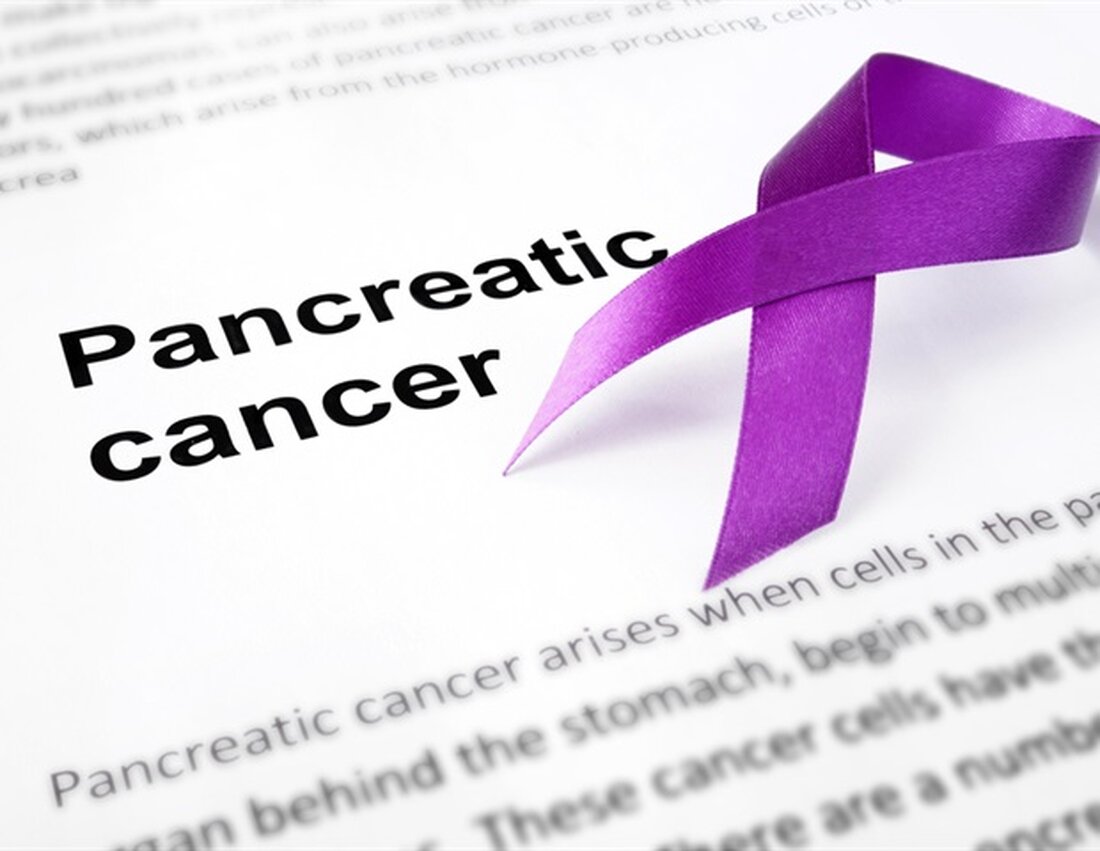Pancreatic cancer could be detected up to three years earlier than current diagnoses
Patients could be diagnosed with pancreatic cancer up to three years earlier than currently, according to new research. Weight loss and rising blood sugar levels are early indicators of pancreatic cancer and could lead to more timely diagnosis, helping to improve survival rates. In the largest study of its kind, researchers from the University of Surrey, in collaboration with Pancreatic Cancer Action and the University of Oxford, examined signs of pancreatic cancer, including weight loss, hyperglycemia and diabetes, and revealed the timelines for their development into cancer. The pancreas is a vital organ with two key functions to produce insulin and digestive enzymes. Cancer can be either or both...

Pancreatic cancer could be detected up to three years earlier than current diagnoses
Patients could be diagnosed with pancreatic cancer up to three years earlier than currently, according to new research. Weight loss and rising blood sugar levels are early indicators of pancreatic cancer and could lead to more timely diagnosis, helping to improve survival rates.
In the largest study of its kind, researchers from the University of Surrey, in collaboration with Pancreatic Cancer Action and the University of Oxford, examined signs of pancreatic cancer, including weight loss, hyperglycemia and diabetes, and revealed the timelines for their development into cancer. The pancreas is a vital organ with two key functions to produce insulin and digestive enzymes. Cancer can affect one or both of these functions, resulting in the symptoms mentioned above. Currently, almost 90 percent of people with pancreatic cancer are diagnosed too late for curative treatment.
Lead author Dr. Agnieszka Lemanska, lecturer in data science at the University of Surrey, said:
“Due to the difficulty of detecting pancreatic cancer, survival rates are extremely poor compared to other cancers, with fewer than 10 percent of people surviving five years or longer after diagnosis.
"Weight loss and elevated blood sugar are recognized symptoms of pancreatic cancer. However, the extent of these symptoms and when they manifest have been unknown. Knowing when they develop will help doctors diagnose this deadly cancer, meaning treatment can begin sooner."
Ali Stunt, founder and CEO of Pancreatic Cancer Action and pancreatic cancer survivor, said:
"I was lucky enough to be diagnosed in time for surgery and 'beat the odds', but unfortunately this is not the case for everyone. The symptoms of pancreatic cancer are ambiguous and difficult for doctors to diagnose; I was originally thought to have gallstones.
“I’m in the one percent who survive pancreatic cancer for more than 10 years, and it’s a lonely place.” a lonely place.”
Using the Oxford-Royal College of General Practitioners Clinical Informatics Digital Hub (ORCHID), researchers analyzed data from 8,777 patients diagnosed with pancreatic cancer and compared them to a control group of 34,979.
Researchers found that dramatic weight loss in people with pancreatic cancer could be detected two years before receiving an official diagnosis. At the time of diagnosis, body max index (BMI) was three units lower in patients with pancreatic cancer. The increase in glycated hemoglobin (HbA1c) was already detectable three years before the diagnosis.
Further statistical analysis found that weight loss was associated with a higher risk of pancreatic cancer in people with diabetes than in people without diabetes. It was also found that hyperglycemia was associated with a higher risk of pancreatic cancer in people without diabetes than in people with diabetes.
Our research suggests that dramatic and unexplained weight loss, primarily in people with but also in people without diabetes, as well as unexplained hyperglycemia should be treated with great suspicion.”
Professor Simon de Lusignan, University of Oxford
eBook Cancer Research
Compilation of the top interviews, articles and news from the last year. Download a free copy
The study's results have led researchers to urge clinicians to conduct BMI and HbA1c assessments more regularly for their patients with and without diabetes. This would help identify those with pancreatic cancer.
Professor de Lusignan added:
"BMI and HbA1c are simple measurements that are routinely collected in clinical practice. However, the challenge for research is the irregular determination of BMI and HbA1c and missing data. For example, we see that BMI and HbA1c were recorded less frequently for people without a diagnosis of diabetes than for people with diabetes. Data-driven approaches could be important tools to help doctors identify patients at risk. However, this depends on the quality and completeness of the data. Regular HbA1c and BMI measurements in primary care would not only improve diabetes and pancreatic cancer diagnoses, but would also improve the quality of routine data for research.”
Dr. Lemanska said:
"Significant weight loss and increases in blood sugar could be detected in patients years before pancreatic cancer diagnosis. This makes these metabolic changes important candidates for pancreatic cancer markers. However, diabetes is so much more common than pancreatic cancer that it is difficult to detect pancreatic cancer-induced hyperglycemia in clinical practice."
Source:
Reference:
Lemanska, A., et al. (2022) BMI and HbA1c are metabolic markers of pancreatic cancer: matched case-control study using a UK primary care database. PLUS ONE. doi.org/10.1371/journal.pone.0275369.
.

 Suche
Suche
 Mein Konto
Mein Konto
